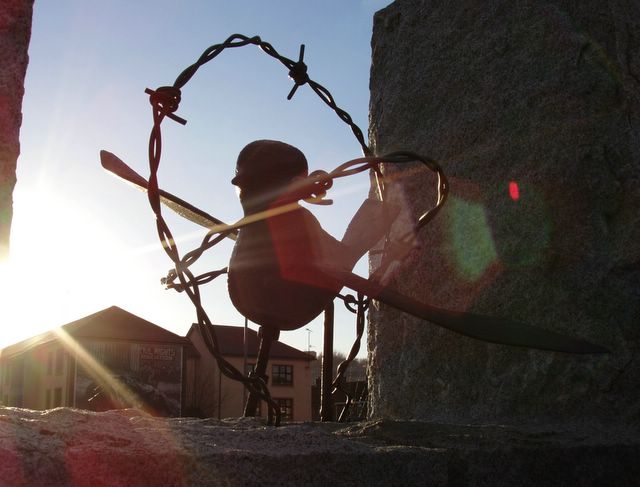“I do my thing and you do your thing. I am not in this world to live up to your expectations and you are not in this world to live up to mine. You are you and I am I, and if by chance we find each other, it's beautiful.”
–Fritz Perls, Father of Gestalt Therapy
I love that quote. It’s so brilliant, yet also so challenging. Last Friday in Fundamentals of Counseling, Vance was discussing Gestalt therapy, a theory of counseling that focuses on the “here and now” and the “what and how” of individual experience. While the theory has its flaws, it has some good things to say about human interaction. In class, Vance was explaining the ramifications of imposing one’s expectations on another human being. He said an example of a bad expectation would be “that my son grows up to be a godly man.” Hmm… sounds like a worthy goal, doesn’t it? But if you look closely, such a goal demands the involvement of another person. When we impose our expectations on other people, our own identity gets wrapped up in their performances. People will let us down. If we let the actions of others determine our own self-worth, we run the risk of certain devastation.
I’m humbled to consider the many ways in which I’ve imposed expectations on others. Whether those expectations were fair or not matters little, the point is that I’ve often let healthy hopes become unhealthy goals. It’s ok to hope someone will treat you a certain way, but when you begin to expect that kind of behavior, you’re just asking for trouble.
While I was in Ireland, my dad and I began to nudge toward reconciliation. It all started with an e-mail and slowly progressed to the end of the summer, when he took me out to dinner at Red Lobster. For the first time in my memory, I felt like I was sitting across from my father and not some enigmatic stranger who took me to the movies every now and then. Things continued along those lines when he asked to come to Parents’ Weekend. While the prospect of having both of my parents in the same place at the same time stressed me out, it excited me to finally show my dad the place I’d been living for the past three years. About a week before the big event, all of my expectations came crashing to the floor when he e-mailed to inform me he would not be coming to visit.
To say I was disappointed would be an understatement. I felt like I’d finally let myself trust him again and he’d betrayed that trust. My pent-up anger unleashed itself into the cold night as I struggled to overcome the hurt and shame. How could I have let myself trust again?
I now see that my trusting him was not the problem. Long ago I’d come to terms with the fact that my father was not a perfect man, and yet at the first sign of progress I put him right back up on his pedestal. It wasn’t fair, nor was it right, to expect him to come and then be furious at him for not meeting that expectation. He didn’t do it to deliberately hurt me and he has shown me in recent months that I do matter to him. Sure, he doesn’t make it very clear, but he has made an effort. I need to appreciate that in him and stop blaming him (and myself) for the flaws in our relationship.
When something goes wrong, especially in relationships, we always ask, “why?” or “what could I have done differently?” It’s basically a grasp for control that supercedes our reliance on God to restore us to each other. “God’s not calling us to figure it out, he’s calling us to let it go,” Vance said. Let it go. Sound familiar?

No comments:
Post a Comment